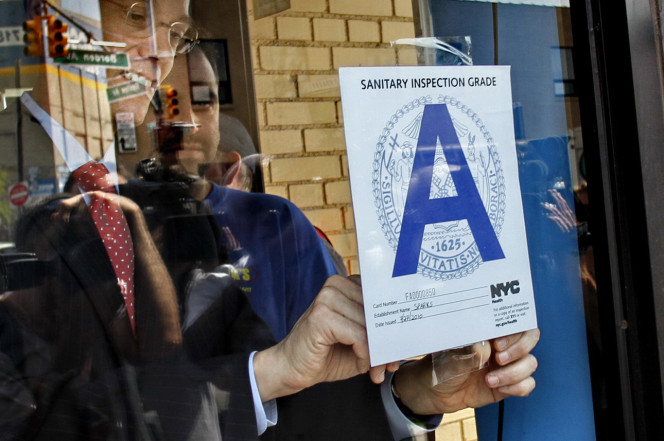If you own a restaurant anywhere be in Costa Rica, the USA or anywhere else in the world, health inspections can be an inconvenience.
 Ask yourself: If the health inspector showed himself at your restaurant right now, would you be ready for a health inspection? If there was any hesitation in your answer, then the answer is no, you’re not ready.
Ask yourself: If the health inspector showed himself at your restaurant right now, would you be ready for a health inspection? If there was any hesitation in your answer, then the answer is no, you’re not ready.
If you don’t want the health inspector to stick a large “Closed Until Further Notice” sign to the front of your dining establishment, you’re going to need to reprioritize the way you do business.
What it Takes to Run a Restaurant
Doesn’t it always seem that the health inspector shows up at the most inopportune times? It’s always during the rush and when wait staff and line cook alike are running around the kitchen shouting orders and putting out grease fires. Life in the kitchen is chaotic, but you don’t want the health inspector to know that!
Here are six tips that’ll help you prepare for your next health inspection.
- Schedule mandatory bi-weekly staff meetings. Conducting bi-weekly check-ins with your staff will keep them abreast of what is going on with the business and what to expect in the weeks to months ahead. The staff meetings should include an agenda of what will be discussed in the meeting and should also include a weekly goals chart for each employee detailing cleaning rounds and food inspection.
- Discuss the grade of the previous health inspection report. Your staff has a right to know where the restaurant stands after health inspections. If your restaurant is earning top marks, share it with your staff and reward them accordingly. An appreciated staff will work more diligently and take more pride in performing their everyday tasks.
- Assign cleaning detail of drains, countertops, floors, etc. Everyone on staff should help to maintain a clean kitchen and restaurant; this includes everyone from the bus boy to the chef. Create a rotating cleaning list so that everyone cleans every part of the kitchen at some point. This will help to familiarize your staff with the kitchen and help them to better understand that when everyone does their part, things will fall into place beautifully.
- Make sure the drains drain. If your kitchen doesn’t have sufficient drainage, you’re going to face a steep health code violation. Proper drainage has a large impact on kitchen hygiene. If the drains are backed up with muck, it’s likely it will all back up into the kitchen. According to Andy Buchan, the managing director at ACO Building Drainage, “good drainage mitigates the risk of bacteria coming in the premises. People are eating out more these days and poor hygiene can cause major food poisoning outbreaks.” Keep your drains clean and free of clogs!
- Check all foodstuffs sell-by dates. Once a restaurant has a reported a food poisoning outbreak, its reputation becomes shaky. Make sure all foodstuffs are fresh and throw away all food that has since passed its expiration date. Customers have grounds to sue if your establishment has been found to be careless in its hygiene and food prep. Along with checking all foodstuffs and keeping a clean kitchen, get a business insurance policy. A business insurance policy will offer financial back up if your establishment should get taken to court. You can find business insurance quotes on sites like CoverHound free of charge.
- Check refrigeration temperatures. Make sure to test your refrigeration temperatures regularly and with a reliable thermometer, you should never rely on the thermometer inside the refrigerator, as the cool temperatures weaken it’s reading after a certain amount of time.
It takes a lot of hard work to keep a restaurant going, but it’s well worth it. By employing the above tips you can serve quality food with a smile knowing that you’re doing everything right in your establishment.

